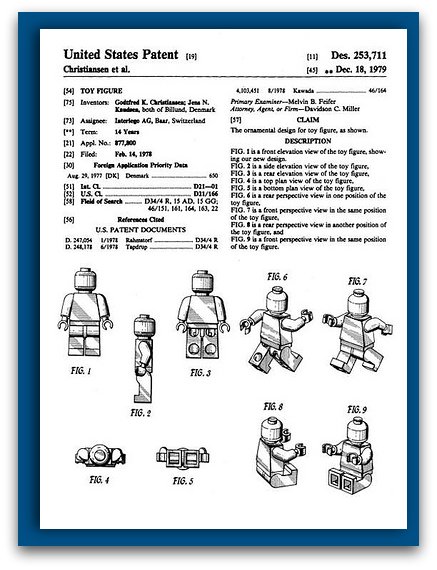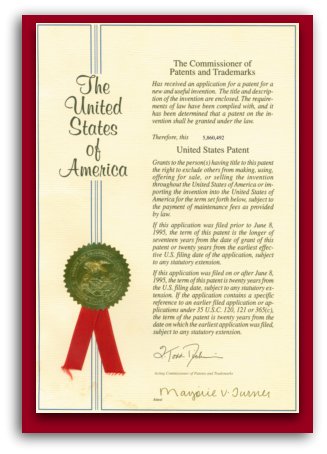Is your invention idea patent worthy?
You have an invention idea you want to patent. But is your invention idea patent worthy? Is your invention idea patentable?
The first thing to know is that while we talk about invention idea and patent in the same sentence, your invention idea per se is usually not patent worthy. Don’t panic. I am not referring to your specific idea. What I mean is that any abstract idea is not enough. For your invention to be patentable you have to have more than just an idea.
The second important thing to understand is that the requirements for a patent, or the answer to the question “what is patentable” depends on the country in which you plan to apply for a patent.
The laws of different countries and/or the treaties that govern their patent laws define what is patentable and what isn’t. While there are some similarities, it’s always important to check the specific requirements in every country you are targeting. By knowing in advance whether your invention idea is patentable, you will save yourself much effort, time and money further down the road.
As an example let’s look at what is patentable in two major markets - The US and the UK.
Invention Idea Patent eligibility - US
The US legal system recognizes three types of patents: Utility patents, Design patents and Plant patents.
Design patents are granted to anyone who invents a ‘new original and ornamental design for an article of manufacture’ – protection is given to a design of how a specific product looks. Not necessarily how it operates.

|
A plant patent is granted to someone who invents, discovers and reproduces a distinct new variety of plant. Here we will focus on the third kind and the one most relevant to most first time inventors – the utility patent.
The law lists a number of options that can be patented, assuming they are new and useful:
- process or method
- machine
- article of manufacture
- Composition of matter
The law also allows for patenting of a new and useful improvement of one of the options above.
This means you don’t have to come up with a completely original and new discovery, you can improve slightly on what currently exists and as long as this improvement is new and useful – you stand a chance for getting a patent
Let’s look at each of these options:
Process or method: usually a series of steps or acts, for performing a function or accomplishing a result. The definition of what falls under “process” and what doesn’t changes from time to time, based on the interpretation the courts have given to the word. If your invention idea patent question is regarding a process, always consult a us patent attorney to find out if your invention is patentable.
In order to get a general idea of what the law means by 'process', we can look at some of the legal interpretations given to it in the past:
- a process needs to be implemented within a specific machine, that was made or adapted to carry out the process in a non trivial way;
- a process needs to transform an article from one thing or state to another thing or state.
- a process, including a process for doing business, must produce a concrete, useful and tangible result to be patentable.
Machine: the concept of machine is quite intuitive to most of us. Here are some of the interpretations the US courts have given to the term “machine”:
- “a concrete thing, consisting of parts, or of certain devices and combination of devices.”
- “includes every mechanical device or combination of mechanical powers and devices to perform some function and produce a certain effect or result”
article of manufacture: here the concept of article of manufacture literally means – something that was manufactured. Intuitively we can see that this covers most product inventions as we can imagine them – such as shoes, ceramics, a laptop etc.
The courts have the interpreted the term manufacture to mean, among other definitions:
"the production of articles for use from raw or prepared materials by giving to these materials new forms, qualities, properties, or combinations, whether by hand-labor or by machinery”
And so an article of manufacture, means an article created as a result of the process explained above.
These definitions are here to give you a general idea as to the meaning of what is patentable. If you are not sure or have a question regarding your own invention idea patent, always seek the advice of a us patent attorney, to find out if your invention is patentable.
What is not patentable according to US law?
You cannot patent physical phenomena or laws of nature. As previously explained, you cannot patent an abstract idea. You cannot patent an invention which is not possible or useful. By useful the US law here means – has a use. There are plenty useless inventions that have been patented, but they still have a use. If you came up with a scientific discovery that has no use, then your discovery can not be patented.
An invention idea patent eligibility in the US is determined by the invention meeting the following tests:

|
- The invention has to be new –the invention idea cannot be disclosed or made public before you apply for a patent.However, in the United States a grace period of one year is granted, prior to the date of application. What this means is that if you have made your invention public, or disclosed it to someone, you can still apply for a patent within a year from the date of publication.
- The invention is inventive – not an obvious modification of what is already known to the public. There is a measure of invention and innovation involved.For example, inventing a red car: let's assume such a car didn’t exist before, it will not be considered inventive, as this is only a cosmetic change and is obvious to anyone familiar with cars.
- The invention is useful – this relates to the fact that the invention should have a use. It should take the form of a device or some form of utilization. The invention can not be just a concept or an idea.
Invention Idea Patent eligibility - UK
In the UK an invention idea is patent worthy if it’s capable of being made or used in some kind of industry. The UK also uses an exclusion method which prevents inventions that fall under the following list from being patented.
Your invention cannot be patented if it’s:
- A mathematical or scientific discovery, theory or method
- A medical treatment or diagnosis
- Works of art, literature, dram or music
- A way of doing business, playing a game or performing a mental act
- Some computer programs, presentation of information
- Animal or plant variety
- Against public policy or against morality
An invention idea patent eligibility in the UK is determined by the invention idea patent application meeting the following tests:
- The invention is new – the invention is not already known to the public, before the application date. Unlike the situation in the US, there is no grace period. Once you disclose your invention and it is made public, your invention is no longer new and you cannot apply for a patent.
- The invention is inventive – not an obvious modification of what is already known to the public. There is a measure of invention and innovation involved.
- The invention has an industrial application – it can be made or used in some kind of industry.
In general, your invention must make a technical contribution or have some aspect of technical innovation to it.
To find out if your invention idea is patent eligible in the UK, always seek the advice of a patent attorney from the UK.
Always check if your invention idea is patent eligible for the country in which you want to apply for patent protection. To find out if your idea is new and hasn’t been disclosed before, try doing a patent search, in each and every country in which you want to apply for protection.
Return from Invention idea Patent Eligibility to Patent Invention Basics
Return from Invention Idea Patent Eligibility to Inventions Handbook
Found this useful? like us on Facebook
Recommend us on Google!
Can't find exactly what you are looking for? search our site:
You might also like
Suggestions? Questions? Comments?
Have your say about what you just read, or share this page with others on Facebook. Leave a comment in the box below.